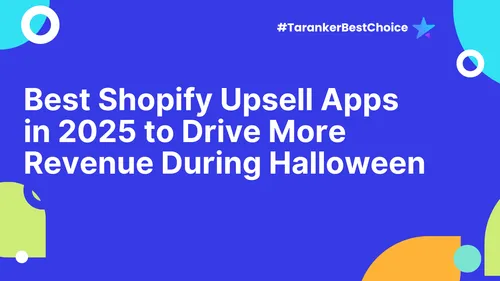In the dynamic world of e-commerce, delivering a personalized shopping experience has become a cornerstone for success. Artificial Intelligence (AI) plays a pivotal role in enabling online retailers, especially those on platforms like Shopify, to tailor their offerings to individual customer preferences. This article delves into the importance of personalization in e-commerce, the types of AI-driven personalization, its impact on customer experience, the mechanisms of AI data collection and analysis, and real-world examples of AI-powered personalization.
Importance of Personalization in E-commerce

Personalization in e-commerce involves customizing the shopping experience to meet the unique needs and preferences of each customer. This approach is vital for several reasons:
-
Enhanced Customer Engagement: Personalized experiences capture customer attention and encourage interaction with the brand.
-
Increased Conversion Rates: Tailored recommendations and offers can lead to higher purchase likelihood.
-
Improved Customer Retention: Personalization fosters loyalty, prompting customers to return for future purchases.
-
Competitive Advantage: Offering a unique, personalized experience differentiates a brand in a crowded marketplace.
Types of Personalization Using AI

AI enables various forms of personalization in e-commerce:
1. Product Recommendations
AI analyzes customer behavior and preferences to suggest products that align with their interests. This can include showcasing similar items, complementary products, or new arrivals that fit the customer's profile.
2. Dynamic Content Personalization
AI customizes website content in real-time based on user data, presenting personalized banners, messages, and product displays to enhance relevance.
3. Personalized Email Marketing
AI-driven tools craft individualized email content, including product suggestions and exclusive offers, based on customer browsing and purchase history.
4. Pricing Personalization
AI adjusts pricing strategies by analyzing customer data and market trends, offering personalized discounts or dynamic pricing to maximize conversions.
5. Chatbots and Virtual Assistants
AI-powered chatbots provide personalized assistance, answering queries, offering product recommendations, and guiding customers through the purchasing process.
Impact of Personalization on Customer Experience

Implementing AI-driven personalization significantly enhances the customer experience:
-
Relevance: Customers receive content and product suggestions that align with their interests, reducing the time spent searching for desired items.
-
Satisfaction: A tailored shopping journey increases customer satisfaction and the likelihood of repeat business.
-
Trust: Personalization demonstrates that a brand understands and values its customers, building trust and loyalty.
-
Efficiency: Streamlined interactions, such as personalized navigation and recommendations, make the shopping process more efficient and enjoyable.
How AI Collects and Analyzes Customer Data for Personalization

AI utilizes various methods to gather and interpret customer data:
1. Data Collection
-
Behavioral Data: Tracking customer interactions on the website, including clicks, time spent on pages, and purchase history.
-
Demographic Data: Collecting information such as age, gender, location, and income levels.
-
Contextual Data: Considering factors like device used, time of access, and referral sources.
2. Data Analysis
-
Machine Learning Algorithms: Identifying patterns and predicting future behavior based on historical data.
-
Natural Language Processing (NLP): Understanding and processing human language to analyze customer reviews and feedback.
-
Predictive Analytics: Forecasting customer needs and preferences to tailor offerings accordingly.
By integrating data from multiple touchpoints, AI creates a comprehensive customer profile, enabling highly personalized experiences.
Examples of AI-Powered Personalization in E-commerce
Several e-commerce platforms have successfully implemented AI-driven personalization:
-
Amazon: Utilizes AI to recommend products based on browsing history, previous purchases, and items in the shopping cart.
-
Netflix: Employs AI algorithms to suggest content aligned with user viewing habits and preferences.
-
Sephora: Uses AI-powered virtual assistants to provide personalized beauty recommendations and tutorials.
-
Stitch Fix: Combines AI with human expertise to offer personalized clothing selections tailored to individual style preferences.
For Shopify merchants and e-commerce retailers, integrating AI-driven personalization strategies can lead to enhanced customer engagement, increased sales, and a competitive edge in the market. By leveraging AI technologies to understand and anticipate customer needs, businesses can create meaningful, individualized shopping experiences that foster loyalty and drive growth.
Frequently Asked Questions (FAQs)
1. How does AI enhance product recommendations?
AI analyzes customer data to identify patterns and preferences, enabling the delivery of personalized product suggestions that align with individual interests.
2. Is implementing AI-driven personalization cost-effective for small businesses?
Yes, many AI solutions are scalable and offer tiered pricing models, making them accessible and cost-effective for small to medium-sized e-commerce businesses.
3. How does AI ensure data privacy in personalization?
AI systems can be designed to comply with data protection regulations, ensuring that customer data is anonymized, securely stored, and used transparently with customer consent.
4. Can AI personalization improve customer retention?
Absolutely. By providing a tailored shopping experience, AI personalization increases customer satisfaction and loyalty, leading to higher retention rates.
5. What are the initial steps to implement AI personalization in my Shopify store?
Begin by integrating AI-powered apps and plugins available in the Shopify App Store that offer personalization features such as product recommendations, personalized email marketing, and dynamic content customization.













